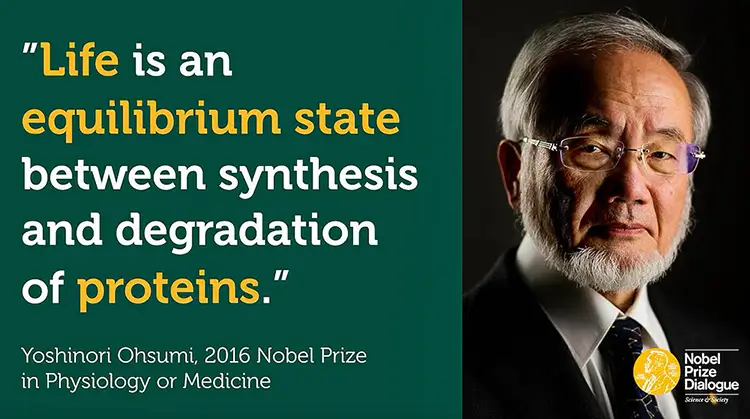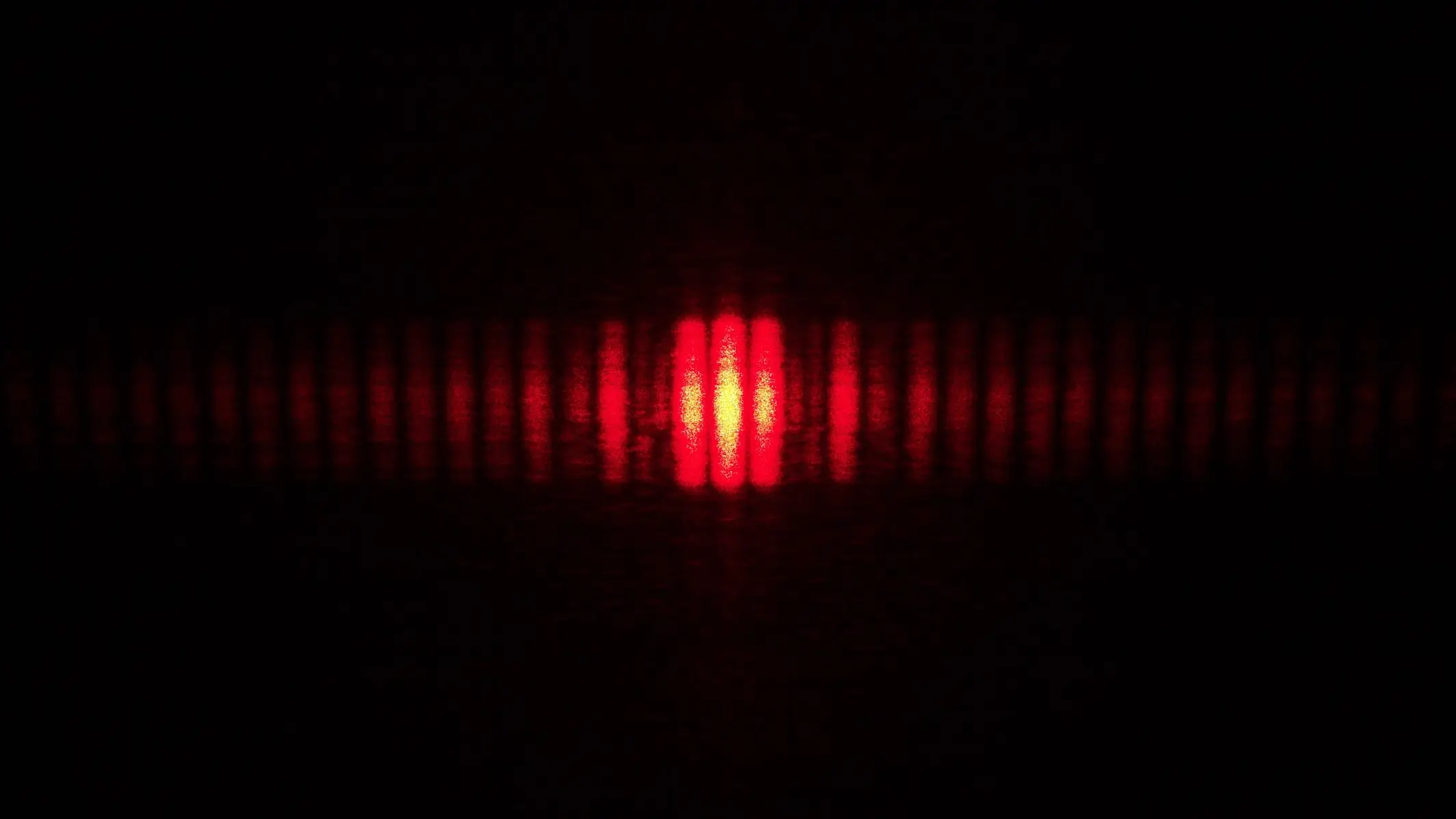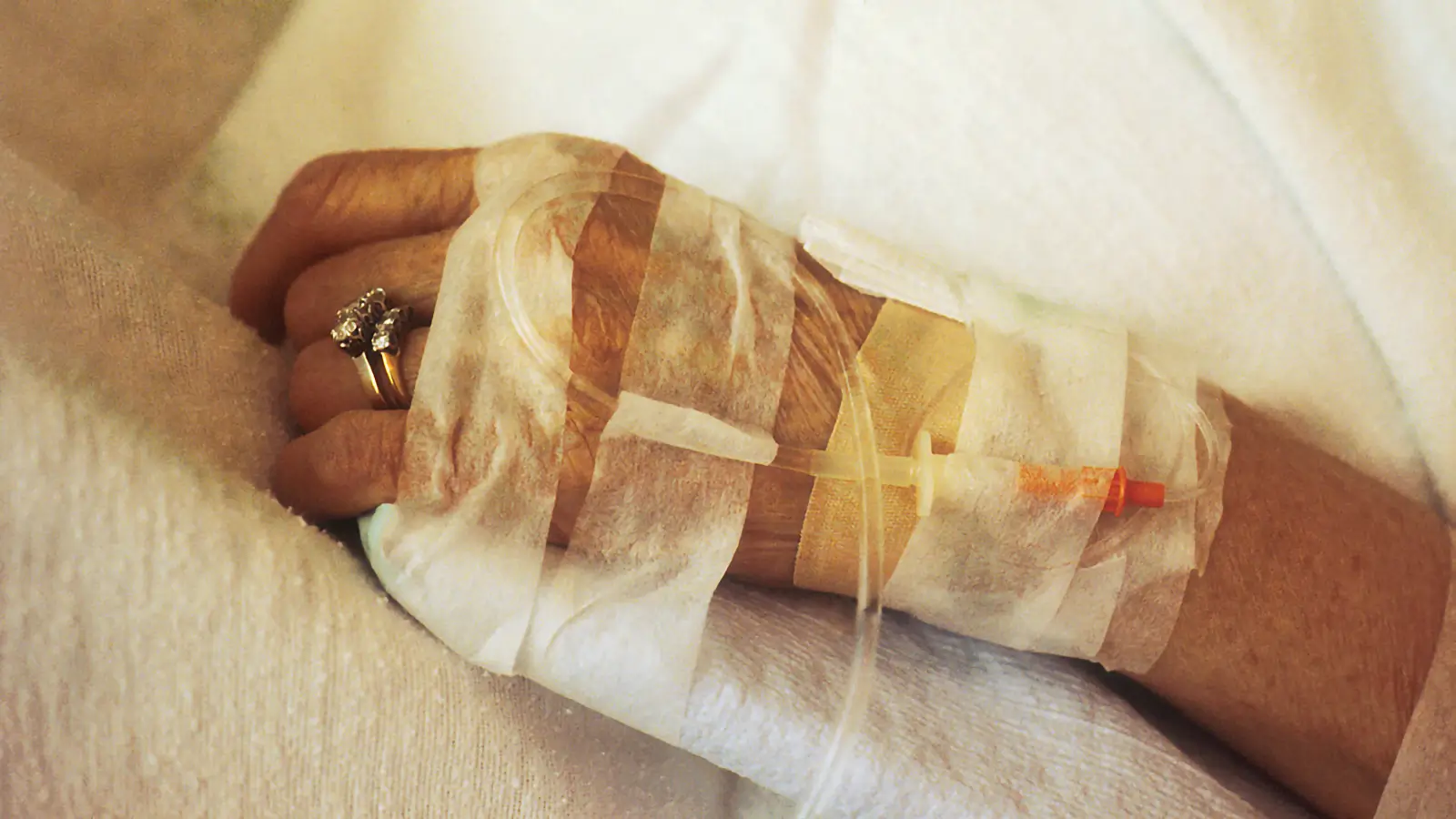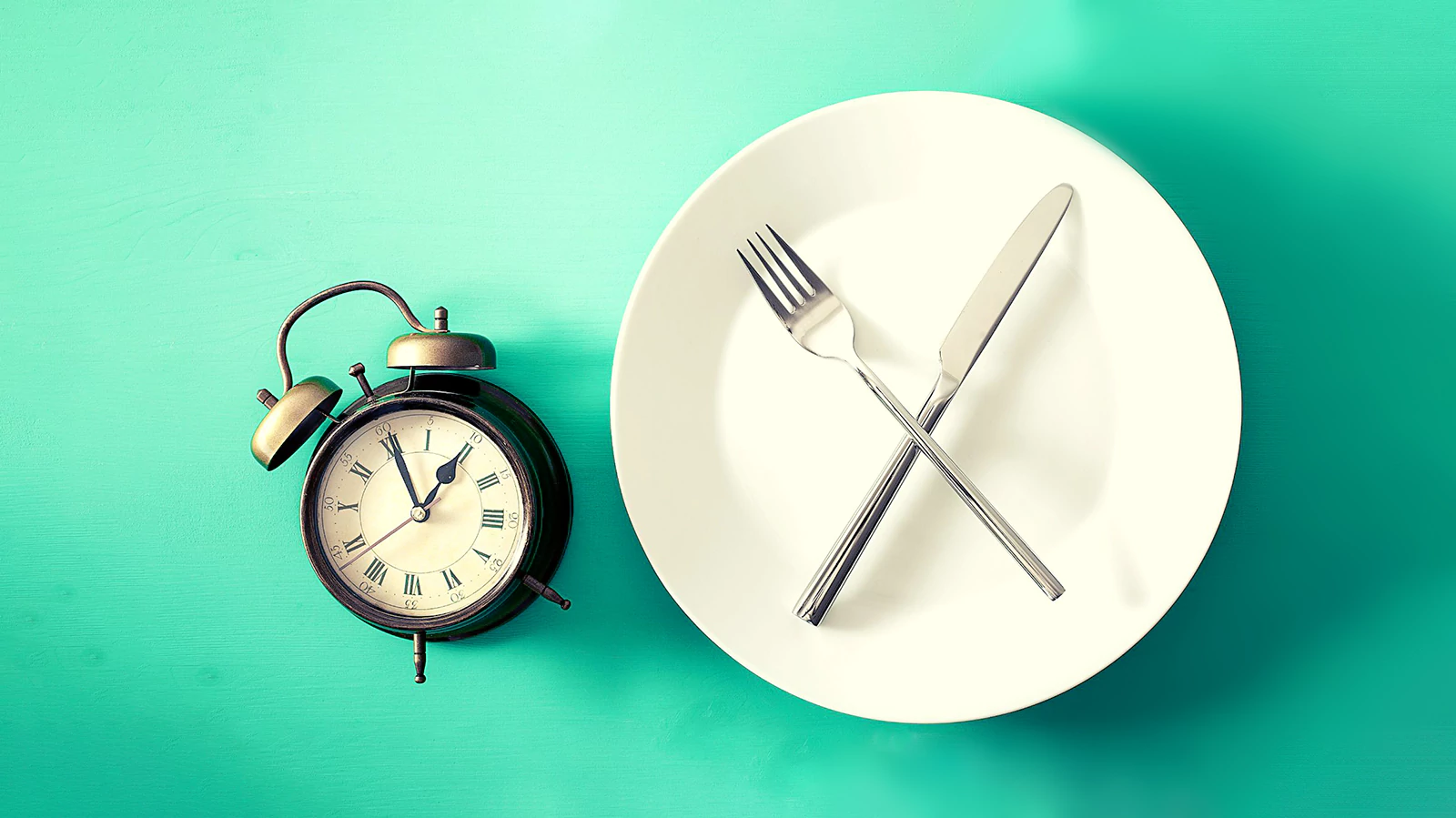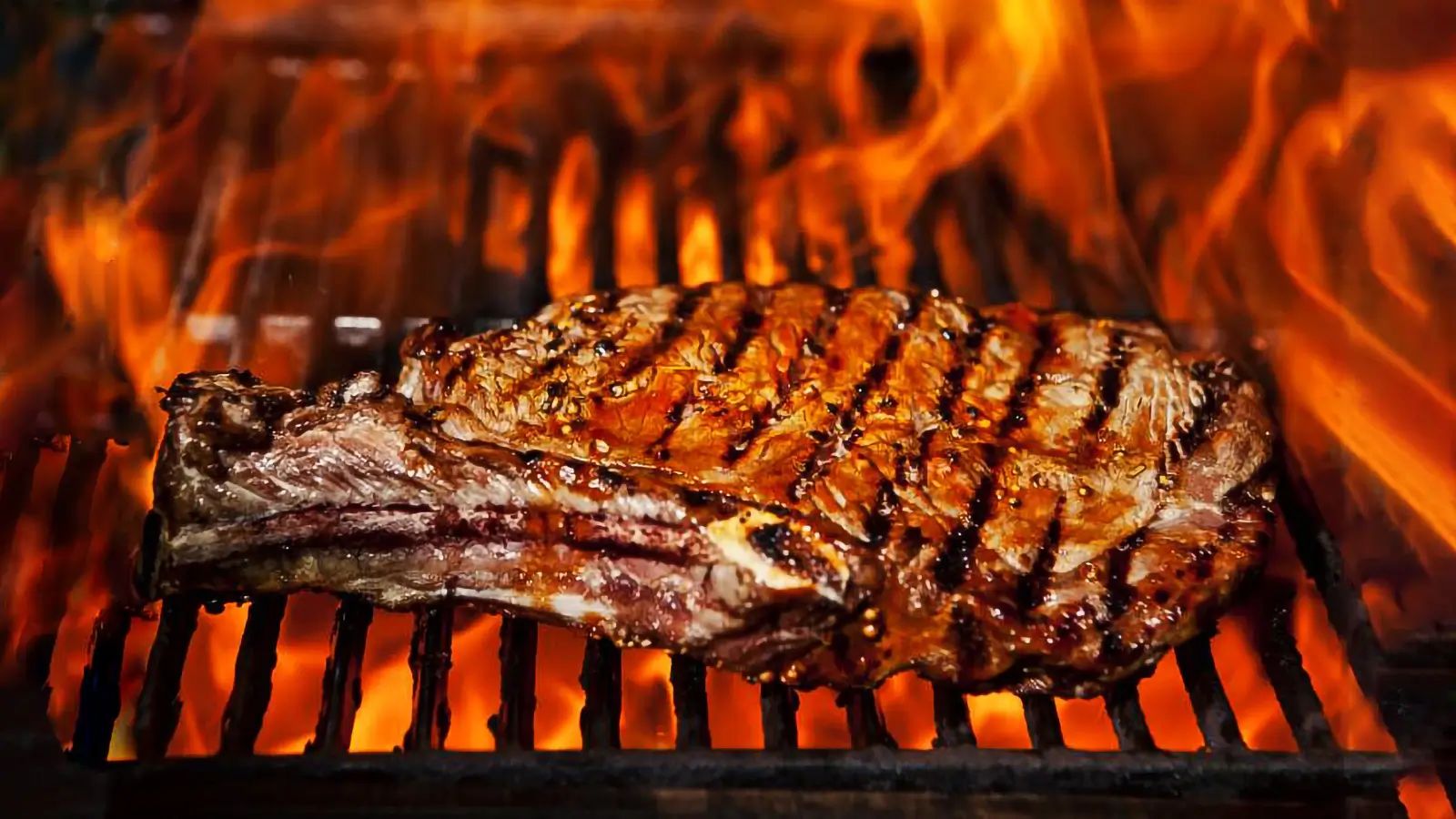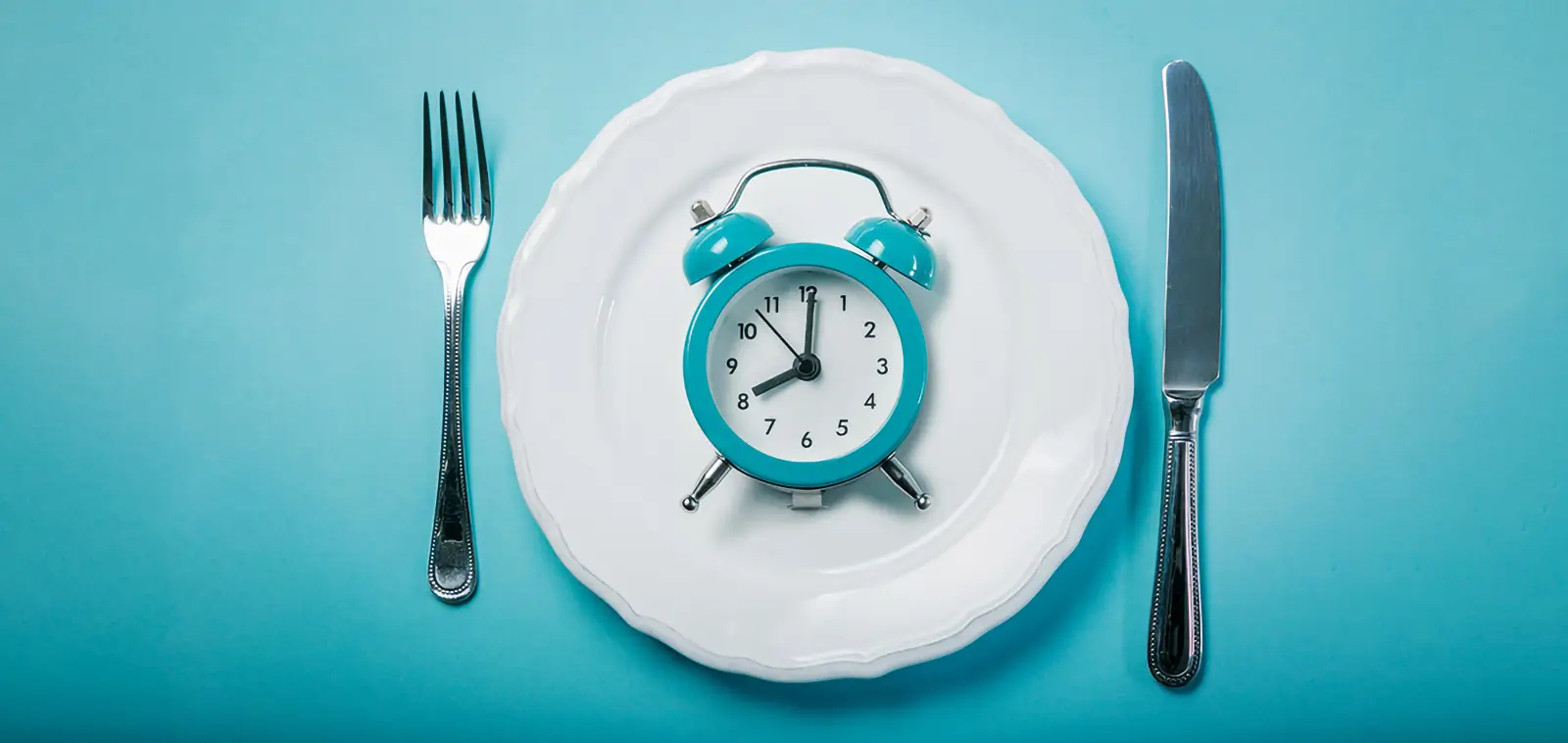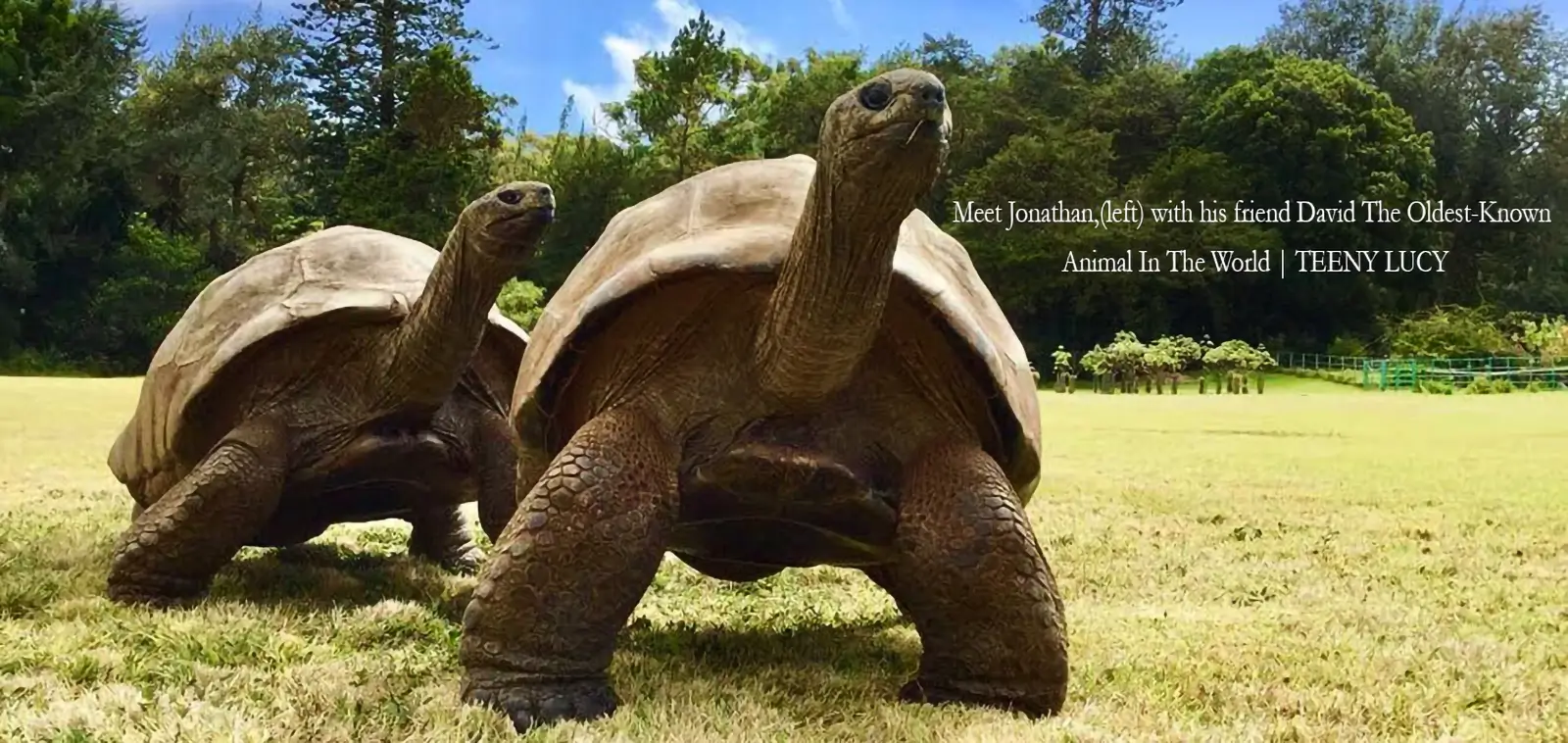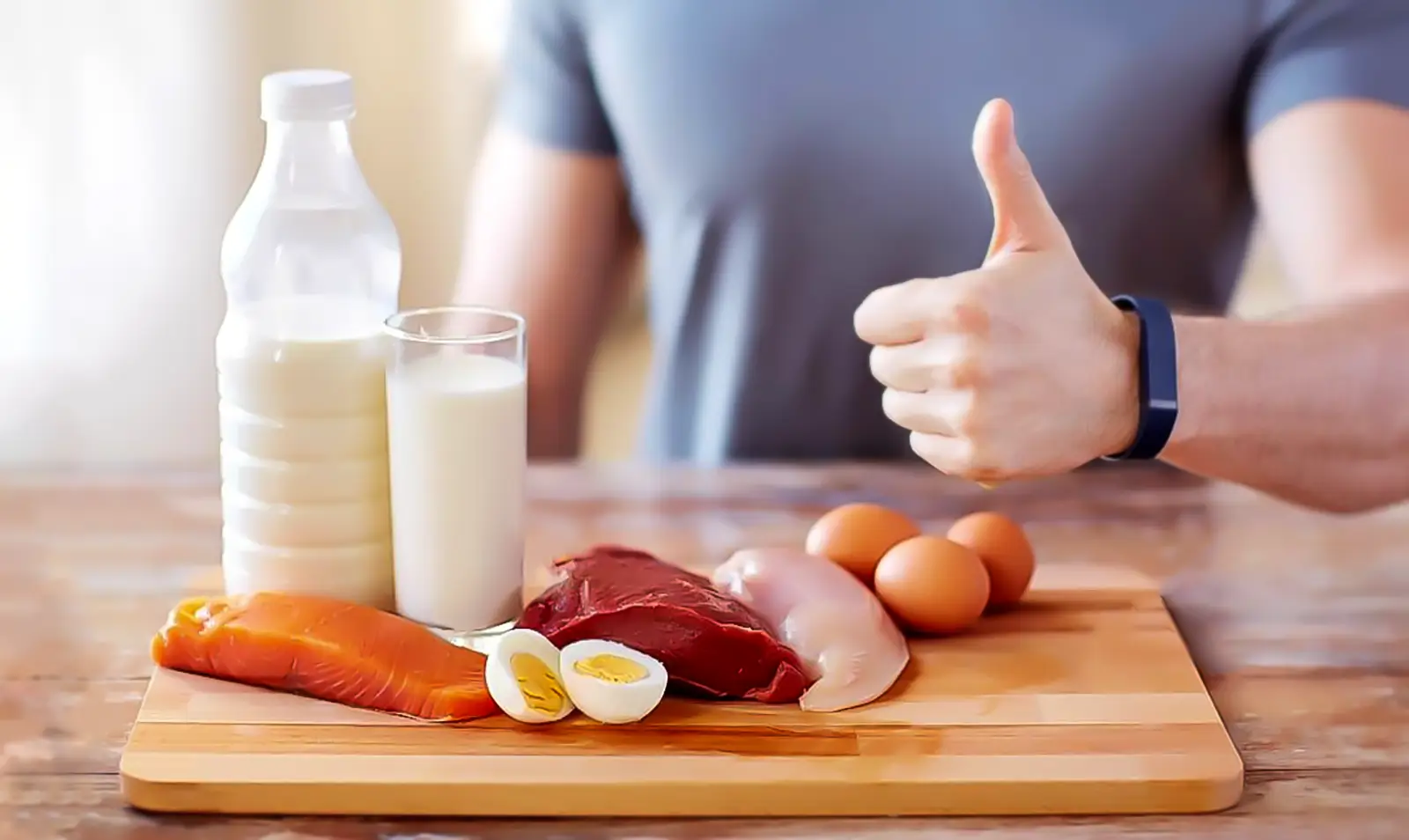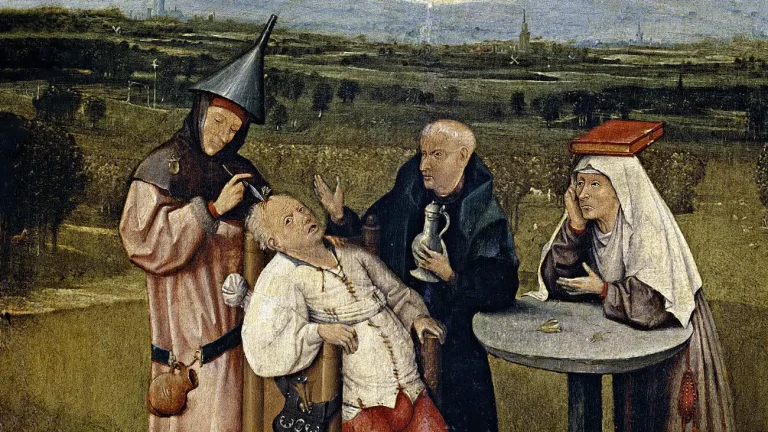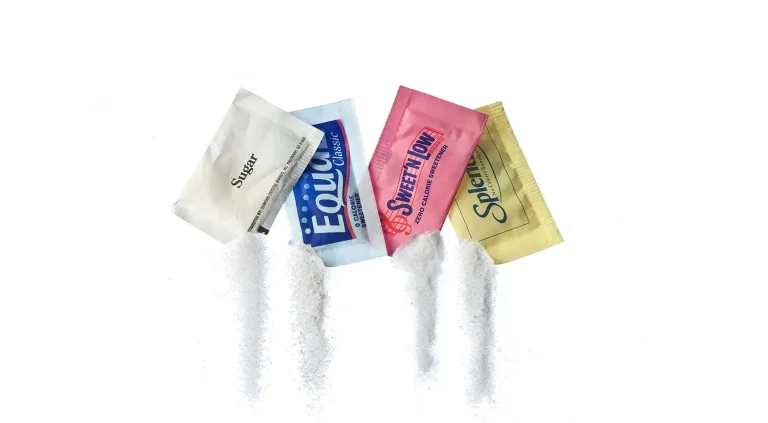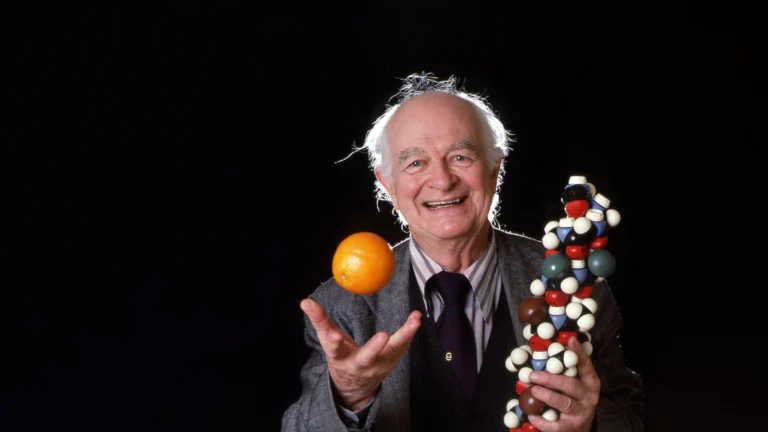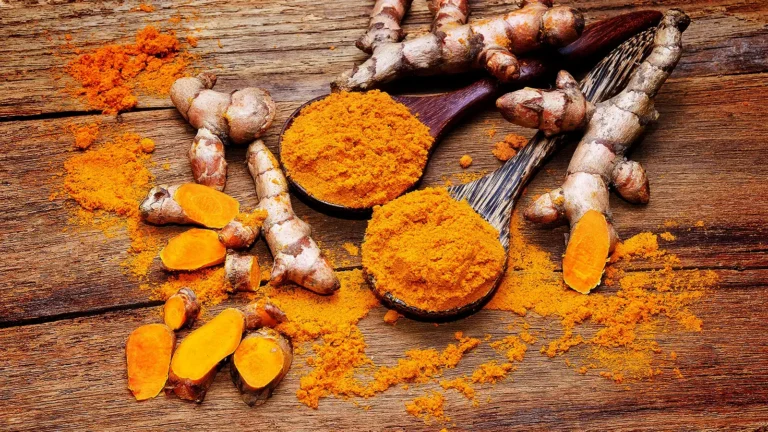Restrição de calorias, Autofagia, a Longevidade e a perda de massa Muscular
Todos nós queremos uma quantidade considerável de massa muscular e o metabolismo rápido, de modo que podemos comer mais, mas autofagia é o que está em linha com a biologia evolutiva.
Milos Pokimica
Escrito por: Milos Pokimica
Revisto Clinicamente Por: Dr. Xiùying Wáng, M.D.
Actualizado em 9 de Junho de 2023Queremos ter massa muscular tanto quanto possível e um metabolismo rápido tanto quanto possível para podermos comer mais e não ganharmos peso, mas a biologia evolutiva dir-nos-á novamente o que é saudável e não é comer constantemente em excesso. Os animais na natureza têm dificuldade em encontrar comida, pelo que um nível básico de existência é um aumento do nível de autofagia com jejum intermitente e restrição calórica. Vou utilizar uma citação do sítio Web do Instituto Nacional do Envelhecimento do Departamento de Saúde e Serviços Humanos dos EUA: Fernández-Ruiz, 2017, Na palavra grega antiga, "phagy" significa comer e a palavra "auto" significa "eu", pelo que autofagia significa auto-alimentação literária. Todos os dias nos comemos a nós próprios. Quando qualquer célula do nosso corpo morre, ela não vai para o lixo. O que acontece é uma reciclagem. A autofagia é um método fisiológico completamente natural no corpo que lida com a destruição das células. Controla a homeostasia ou o funcionamento regular através da degradação e destruição de proteínas e da rotação dos organelos celulares destruídos para a formação de novas células. Durante o stress celular (privação de nutrientes), o processo de autofagia é aumentado: "Ei, vamos cultivar coisas, agora temos todos os aminoácidos essenciais.",Denduluri et al., 2015,Cava et al., 2017,Fernández-Ruiz I. (2017). Metabolismo: Restrição calórica para um envelhecimento saudável.",Cava, E., Yeat, N. C., & Mittendorfer, B. (2017). Preservando músculos saudáveis durante a perda de peso.,Welton, S., Minty, R., O'Driscoll, T., Willms, H., Poirier, D., Madden, S., & Kelly, L. (2020). Jejum intermitente e perda de peso: Revisão sistemática, (2), 117-125, Zouhal, H., Saeidi, A., Salhi, A., Li, H., Essop, M. F., Laher, I., Rhibi, F., Amani-Shalamzari, S., & Ben Abderrahman, A. (2020). Treino de exercício e jejum: Current Insights.,, 1-28.,Denduluri, S. K., Idowu, O., Wang, Z., Liao, Z., Yan, Z., Mohammed, M. K., Ye, J., Wei, Q., Wang, J., Zhao, L., & Luu, H. H. (2015). Insulin-like growth fator (IGF) signaling in tumorigenesis and the development of cancer drug resistance.,(1), 13-25.,Calorie restriction, Autophagy, Longevity, and Muscle loss 33,Calorie restriction, Autophagy, Longevity, and Muscle loss 34,Glycogen depletion- How not to exercise 24,Inflammation and diet- Vegan argument 27,Intermittent Fasting vs Calorie Restriction- Is there a difference? 28,Longevidade: A teoria da taxa de vida 29,Compreender os valores ORAC: Níveis de Antioxidantes nos Alimentos 35,Deficiência de Micronutrientes na Dieta Americana Padrão: Estratégias de otimização 40,Dieta de alimentos crus - A perspetiva evolutiva 41,Açúcar refinado: Compreender os riscos 42
"Desde a década de 1930, os investigadores descobriram consistentemente que os ratos e ratos de laboratório vivem até 40 por cento mais tempo do que o habitual e também parecem ser mais resistentes a doenças relacionadas com a idade quando alimentados com uma dieta que tem pelo menos 30 por cento menos calorias do que normalmente consumiriam. Agora os investigadores estão a explorar se e como a restrição calórica irá afectar o envelhecimento em macacos e outros primatas não humanos".
Actualmente, dispomos de um grande número de estudos em seres humanos (Fernández-Ruiz, 2017). A resposta de restrição calórica existe em quase todas as espécies testadas até à data e provavelmente evoluiu muito cedo na história da vida na Terra como um mecanismo para aumentar as hipóteses de sobreviver a carências periódicas. Existe uma diferença entre o jejum e a restrição calórica prolongada, mas o mecanismo subjacente é o mesmo, e a restrição calórica prolongará a esperança de vida muito mais do que o jejum periódico, embora mesmo o jejum periódico tenha efeitos benéficos na longevidade.
Os benefícios provêm de duas razões principais. Existem outros benefícios, como por exemplo:
- melhor sensibilidade insulínica
- regulação das condições inflamatórias no corpo
- formação de células cancerosas a morrer de fome
- desintoxicante
- melhorar os padrões alimentares
- equilíbrio hormonal.
No entanto, há duas razões principais a nível celular que sublinham todos os outros benefícios que brotam destes dois.
Em primeiro lugar, quando os níveis sanguíneos de insulina baixam significativamente, e os níveis sanguíneos de hormona de crescimento podem aumentar até 5 vezes. A insulina e a hormona de crescimento desempenham papéis antagónicos uns contra os outros. Quando uma é elevada, a outra será baixa. Quando vamos dormir, jejuamos durante 10 horas, a insulina cai e a HGH (hormona de crescimento humano) sobe. Quando a HGH sobe, crescemos, especialmente se estivermos na puberdade. HGH estimula o crescimento, reprodução celular e regeneração celular. É, portanto, essencial no desenvolvimento humano.
Em segundo lugar, quando aceleramos as nossas células, iniciamos importantes processos de reparação celular e mudança nos genes que elas exprimem. Começamos a regenerar e a permitir a limpeza e desintoxicação do corpo. Uma das razões pelas quais as pessoas doentes têm um baixo apetite é que existem no processo de regeneração intensiva. Em termos médicos, essa regeneração é chamada de autofagia.
In the ancient Greek word, “phagy” means eating and the word “auto” means self, so autophagy means literary self-eating. You self-eat yourself every day. When any cell in our body dies, it will not go to waste. What happens is recycling. Autophagy is a completely natural physiological method in the body that deals with the destruction of cells. It controls homeostasis or regular functioning by protein degradation and destruction and turnover of the destroyed cell organelles for new cell formation. During cellular stress (deprivation of nutrients) the process of autophagy is increased.
A autofagia também tem a capacidade de destruir as células sob certas condições. Há uma forma de morte celular programada e há a morte celular induzida por autofagia. Dois tipos diferentes. A morte celular programada é normalmente denominada apoptose. Autofagia é denominada como morte celular programada não apoptótica com diferentes vias e mediadores da apoptose. Além disso, esta é a chave para a restrição calórica e o jejum. Se a célula for pré-cancerosa, por exemplo, ou danificada ou mutada de alguma forma, a morte da célula autofágica ajudará o nosso corpo a limpar-se a si próprio.
Após o esgotamento do glicogénio, entraremos em autofagia crescente, e o nosso corpo apoiar-se-á fortemente em aminoácidos e catabolismo proteico para a criação de energia. Os aminoácidos serão utilizados, e parte da massa muscular será perdida.
Além disso, é uma coisa boa.
O nosso organismo é muito mais inteligente do que pensamos. O nosso coração também é o músculo, mas não seria tocado. Primeiro vai o glicogénio, depois a gordura, depois o músculo, depois os órgãos vitais, e depois morremos de subnutrição. É um plano brilhante para sustentar a vida através da fome. Se existe uma célula "má" e uma célula "boa" e algumas das células precisam de "ir" buscar energia, primeiro na linha está a célula má. Os primeiros em linha a serem eliminados são as partes do sistema que podem estar danificadas ou velhas. As partes ineficientes. Acredita-se que a ausência de autofagia é uma das principais razões para a acumulação de células danificadas, e isto pode levar a sérias complicações de saúde. Se começarmos a ser severamente danificados pela quimioterapia ou outras toxinas, os ciclos de jejum podem gerar, literalmente, um sistema imunitário inteiramente novo.
O exercício por si só é capaz de aumentar a autofagia, numa situação em que a autofagia já acontece. Quanto mais intensivo for o exercício, tanto mais eficaz será. No entanto, se comermos e fizermos o exercício sozinho, não será benéfico.
A forma mais rápida de desligar a autofagia é comer grandes quantidades de proteína completa. O que isto fará é estimular o IGF-1 (factor de crescimento semelhante à insulina 1) e o mTOR (rapamicina), que são potentes inibidores da autofagia. O IGF-1 (factor de crescimento da insulina) é de certa forma responsável pelo crescimento muscular. No entanto, o efeito secundário catastrófico do IGF-1 é o cancro. É melhor limitar a proteína a cerca de 50 a 70 gramas por dia, dependendo da massa corporal magra. Quando ingerimos grandes quantidades de proteína, o nosso fígado detecta-a, e a resposta é:
”Hey let’s grow stuff, we have all essential amino acids now.”
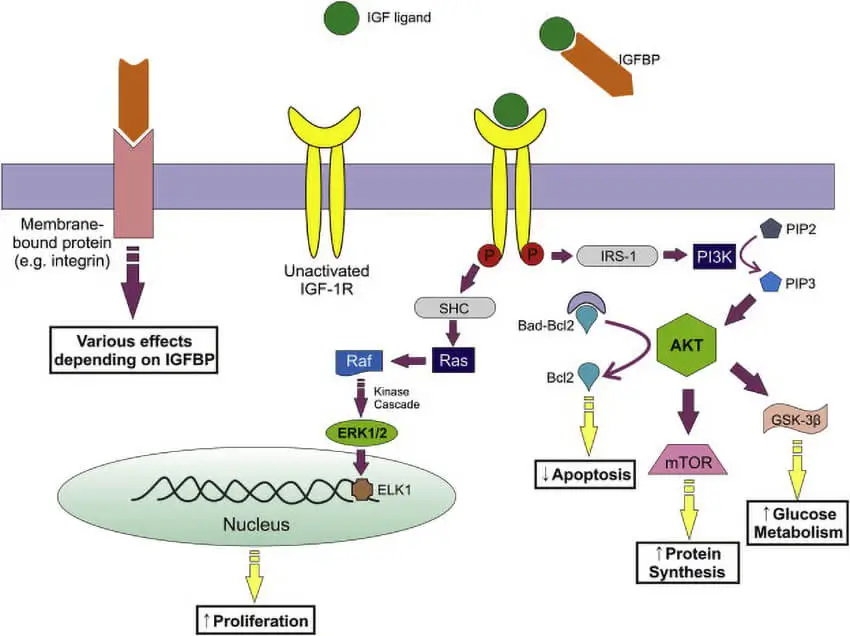
Começa a bombear o IGF-1. No estado de jejum, a ligação do GH (hormona de crescimento) é diminuída, de modo que mais GH é deixado na corrente sanguínea. Na restrição proteica, os receptores GH são mantidos, mas não para o IGF-1.
Para evitar a perda de músculo durante a restrição calórica e a dieta e para aumentar os benefícios da restrição calórica, o caminho a seguir é fazer um treino de resistência moderado. Isto não evitará a perda de músculo, mas será benéfico até certo ponto (Cava et al., 2017).
Outra forma é evitar alimentos não vegetarianos ou, por outras palavras, fontes de proteína "completa" em grandes quantidades.
Quando ingerimos uma fonte de proteína incompleta, o que significa que lhe faltam alguns dos aminoácidos essenciais, a libertação de IGF-1 não será sinalizada ao mesmo nível. Não se trata apenas da quantidade total de proteína consumida, mas também da fonte (Allen et al., 2002).
Se for vegano e comer fontes completas de proteínas como a soja, irá negar o benefício. É por causa do perfil proteico. Por exemplo, os veganos que comem 7 a 18 porções de refeições de soja por dia podem acabar com níveis de IGF-1 circulantes que são relativos aos que comem carne. Isto deve-se ao facto de a soja ter proteína completa. Algumas outras plantas também têm proteínas de alta qualidade. O elevado nível de consumo de proteínas na dieta tem outros efeitos negativos, independentemente disso. Também se o seu único objectivo é evitar a perda de massa muscular durante a dieta e não estiver interessado na longevidade, vai querer aumentar a sua ingestão de proteínas.
A boa notícia é que podemos usar a autofagia para limpar a nossa base genética, a má notícia é que já não o fazemos. No passado, a natureza obrigou-nos por não fornecermos recursos suficientes. Hoje comemos regularmente e mesmo que passemos fome, isso não vai durar o suficiente para esgotar os nossos armazéns de glicogénio.
Referências:
- Fernández-Ruiz I. (2017). Metabolism: Calorie restriction for healthy ageing. Revisões da Nature. Cardiologia, 14(4), 190. https://doi.org/10.1038/nrcardio.2017.26
- Cava, E., Yeat, N. C., & Mittendorfer, B. (2017). Preserving Healthy Muscle during Weight Loss. Avanços em Nutrição, 8(3), 511-519. https://doi.org/10.3945/an.116.014506
- Allen, N. E., Appleby, P. N., Davey, G. K., Kaaks, R., Rinaldi, S., & Key, T. J. (2002). The associations of diet with serum insulin-like growth fator I and its main binding proteins in 292 women meat-eaters, vegetarians, and vegans. Epidemiologia, biomarcadores e prevenção do cancro: uma publicação da Associação Americana para a Investigação do Cancro, co-patrocinada pela Sociedade Americana de Oncologia Preventiva, 11(11), 1441-1448.[PubMed]
- Welton, S., Minty, R., O’Driscoll, T., Willms, H., Poirier, D., Madden, S., & Kelly, L. (2020). Intermittent fasting and weight loss: Systematic review. Médico de família canadiano Medecin de famille canadien, 66(2), 117–125.[PubMed]
- Zouhal, H., Saeidi, A., Salhi, A., Li, H., Essop, M. F., Laher, I., Rhibi, F., Amani-Shalamzari, S., & Ben Abderrahman, A. (2020). Exercise Training and Fasting: Current Insights. Revista de acesso aberto de medicina desportiva, 11, 1–28. https://doi.org/10.2147/OAJSM.S224919
- Denduluri, S. K., Idowu, O., Wang, Z., Liao, Z., Yan, Z., Mohammed, M. K., Ye, J., Wei, Q., Wang, J., Zhao, L., & Luu, H. H. (2015). Insulin-like growth factor (IGF) signaling in tumorigenesis and the development of cancer drug resistance. Genes e doenças, 2(1), 13–25. https://doi.org/10.1016/j.gendis.2014.10.004
Publicações Relacionadas
Você tem alguma dúvida sobre saúde e nutrição?
Eu adoraria ouvir de você e respondê-las em meu próximo post. Agradeço sua contribuição e opinião e espero ouvir de você em breve. Eu também convido você a siga-nos no Facebook, Instagram e Pinterest para mais conteúdos sobre dieta, nutrição e saúde. Pode deixar um comentário e ligar-se a outros entusiastas da saúde, partilhar as suas dicas e experiências e obter apoio e encorajamento da nossa equipa e comunidade.
Espero que este post tenha sido informativo e agradável para si e que esteja preparado para aplicar os conhecimentos que aprendeu. Se achou este post útil, por favor partilhá-lo com os seus amigos e familiares que também possam beneficiar com isso. Nunca se sabe quem poderá precisar de alguma orientação e apoio no seu percurso de saúde.
– Você Também Pode Gostar –

Aprender Sobre Nutrição
Milos Pokimica é médico de medicina natural, nutricionista clínico, escritor de saúde e nutrição médica, e conselheiro em ciências nutricionais. Autor da série de livros Go Vegan? Revisão de Ciênciaopera também o website de saúde natural GoVeganWay.com
Medical Disclaimer
GoVeganWay.com traz análises das pesquisas mais recentes sobre nutrição e saúde. As informações fornecidas representam a opinião pessoal do autor e não pretendem nem implicam substituir aconselhamento, diagnóstico ou tratamento médico profissional. As informações fornecidas são apenas para fins informativos e não se destinam a servir como substituto para consulta, diagnóstico e/ou tratamento médico de um médico ou profissional de saúde qualificado.NUNCA DESCONSIDERE o CONSELHO MÉDICO PROFISSIONAL OU adiar a BUSCA de TRATAMENTO MÉDICO por causa DE ALGO QUE TENHA LIDO OU ACESSADO por MEIO de GoVeganWay.com
NUNCA APLIQUE QUAISQUER MUDANÇAS de estilo de VIDA OU QUALQUER MUDANÇA COMO UMA CONSEQUÊNCIA DE ALGO QUE TENHA LIDO NO GoVeganWay.com ANTES de CONSULTORIA de LICENÇA MÉDICA.
No caso de uma emergência médica, ligue para o médico ou para o 911 imediatamente. GoVeganWay.com não recomenda ou endossa qualquer específicos, grupos, organizações, exames, médicos, produtos, procedimentos, opiniões ou outras informações que podem ser mencionadas dentro.
Sugestões do Editor –
Milos Pokimica é médico de medicina natural, nutricionista clínico, escritor de saúde e nutrição médica, e conselheiro em ciências nutricionais. Autor da série de livros Go Vegan? Revisão de Ciênciaopera também o website de saúde natural GoVeganWay.com
Artigos Mais Recentes -
Planta De Notícias Com Base Em
-
A Day Of High-Protein Vegan Meals – Featuring Homemade Seitan
on Julho 2, 2025
-
These Raw Apple Pie Bars Are Gluten-Free And Vegan
on Julho 2, 2025
-
Califia Farms Expands Oat Barista Range With Two New Nut-Flavored Blends
on Julho 2, 2025
-
Vegan Marathoner To Run Length Of UK For His 60th Birthday
on Julho 1, 2025
-
These Easy Plant-Based Enchiladas Are Oil-Free
on Julho 1, 2025
-
‘This Is Our Most Popular Vegan Salad After 20 Years In Business’
on Julho 1, 2025
-
Plant-Based Foods ‘More Viable’ Option Than Insect-Based For Replacing Meat
on Julho 1, 2025
Superior De Saúde De Notícias — ScienceDaily
- A midlife MRI that spots rapid aging and signals disease long before symptomson Julho 2, 2025
A new brain scan tool shows how quickly your body and mind are aging. It can spot early signs of diseases like dementia, long before symptoms begin. The scan looks at hidden clues in your brain to predict future health.
- The pandemic pet boom was real. The happiness boost wasn’ton Julho 2, 2025
Locked-down Hungarians who gained or lost pets saw almost no lasting shift in mood or loneliness, and new dog owners actually felt less calm and satisfied over time—hinting that the storied “pet effect” may be more myth than mental-health remedy even in extreme isolation.
- Tiny gut “sponge” bacteria found to flush out toxic PFAS “forever chemicals”on Julho 2, 2025
Cambridge scientists have spotted gut bacteria that greedily soak up PFAS “forever chemicals,” then ferry them safely out of the body in animal tests, removing up to three-quarters of the toxins within minutes. Their findings hint at probiotic pills that could shield people from PFAS-linked cancers, fertility issues, and heart disease while lawmakers scramble to rein in 4,700 widespread compounds.
- Researchers tested 200 toddlers — 96 chemicals were lurking in their bodieson Julho 2, 2025
Researchers testing urine from 2- to 4-year-olds in four U.S. states uncovered 96 different chemicals, many of them unmonitored and linked to hormone and brain disruption. Legacy toxins like triclosan are slowly declining, yet replacements such as DINCH plasticizer and modern pesticides are rising. Toddlers—especially the youngest, later-born, and those from minority groups—often carried higher levels than their own mothers. Scientists urge expanded biomonitoring and stricter regulations […]
- Ultrafast 12-minute MRI maps brain chemistry to spot disease before symptomson Julho 2, 2025
Illinois engineers fused ultrafast imaging with smart algorithms to peek at living brain chemistry, turning routine MRIs into metabolic microscopes. The system distinguishes healthy regions, grades tumors, and forecasts MS flare-ups long before structural MRI can. Precision-medicine neurology just moved closer to reality.
- Synthetic storm: What’s really in your teen’s vape — and why scientists are alarmedon Julho 1, 2025
Teen vaping is changing fast — and not in a good way. A large national study found that more adolescents are vaping THC, CBD, and especially synthetic cannabinoids, which are often unregulated and far more dangerous. Even more troubling, many teens don’t know what’s in their vape pens at all. Researchers also found that girls are now more likely than boys to vape these substances. As these mysterious and risky chemicals gain popularity, scientists are sounding the alarm about the urgent […]
- Is that really ADHD? Why flawed trials may be misleading millionson Julho 1, 2025
Researchers reviewing nearly 300 top-tier ADHD drug trials found that half skipped the rigorous, expert-led evaluations needed to rule out other conditions like depression or schizophrenia. With diagnoses often made by unqualified staff—or even by computer—many participants may not have actually had ADHD, casting doubt on study outcomes that shape treatment guidelines.
PubMed, #vegan-dieta –
- Exploring the role of gut microbiota in rheumatoid arthritis: the effects of diet and drug supplementationon Julho 2, 2025
Rheumatoid Arthritis (RA) is a chronic autoimmune disease that mostly breaks out at the joints. It further causes bone erosion and decreased life quality due to severe pain. Current drugs are mainly focused on reducing pain, but unable to terminate the disease progression. This study aims to determine the effect of diet types (Western, Vegan and Mediterranean) on RA progression. Some dietary supplements and drug administration (Huayu-Qiangshen-Tongbi formula or Leflunomide plus Methotrexate) […]
- Blood biomarkers of Alzheimer’s disease in Australians habitually consuming various plant-based dietson Junho 30, 2025
BackgroundEvidence suggests that plant-based diets (PBDs) may be protective against neurodegenerative diseases such as Alzheimer’s disease (AD).ObjectiveThis study examined associations between blood-based AD biomarkers in individuals 30-75 years without current or diagnosed cardiovascular disease following different PBDs versus regular meat-eating diets (RMEs).MethodsThis secondary analysis of the Plant-based Diets study measured Aβ(1-42)/Aβ(1-40), p-tau181, NFL, and GFAP in 237 plasma […]
- Zinc supplementation among zinc-deficient vegetarians and vegans restores antiviral interferon-α response by upregulating interferon regulatory factor 3on Junho 28, 2025
CONCLUSION: We identified zinc-dependent IRF3 expression as an essential cellular mechanism behind impaired IFNα response in zinc-deficient subjects. This may contribute to disturbed antiviral immunity and cause increased susceptibility to virus infections in vivo. Oral zinc supplementation effectively restored IRF3 and IFNα levels. Hence, nutritional interventions may become increasingly important in order to prevent health implications from micronutrient deficiencies among vegetarians and…
- Micronutrient intake and nutritional status in 16-to-24-year-olds adhering to vegan, lacto-ovo-vegetarian, pescatarian or omnivorous diets in Swedenon Junho 26, 2025
CONCLUSION: Youth, regardless of dietary practice, need support to ensure adequate micronutrient intakes, particularly for vitamin D and selenium. Further research is required to evaluate iodine nutrition in Swedish youth.
- Integrating comparative genomics and risk classification by assessing virulence, antimicrobial resistance, and plasmid spread in microbial communities with gSpreadCompon Junho 26, 2025
CONCLUSIONS: The gSpreadComp workflow aims to facilitate hypothesis generation for targeted experimental validations by the identification of concerning resistant hotspots in complex microbial datasets. Our study raises attention to a more thorough study of the critical role of diet in microbial community dynamics and the spread of AMR. This research underscores the importance of integrating genomic data into public health strategies to combat AMR. The gSpreadComp workflow is available at…
Postagens aleatórias –
Postagens em destaque –

Últimas do PubMed, #dieta baseada em vegetais –
- Optimizing Aedes albopictus rearing: effects of insect- and bacteria-based larval diets on immature and adult performancepor Eleni C Savvidou on Julho 2, 2025
Mass production of Aedes albopictus for Sterile Insect Technique (SIT) requires cost-effective and nutritionally balanced larval diets to ensure high survival, optimal development and competitive adult fitness. This study evaluates the potential of insect-derived meals and dead autoclaved bacteria as the main protein sources in mosquito larval diets. Four isoproteinic diets were studied, each one incorporating different protein sources: Brewer’s yeast (CAA), Tenebrio molitor meal (UTH-YM),…
- Association between adherence to Mediterranean-DASH intervention for neurodegenerative delay diet and disease severity in patients with ulcerative colitispor Zeinab Nikniaz on Julho 2, 2025
Considering the importance of induction and maintenance of remission in patients with ulcerative colitis (UC), different studies investigated the association between adherence to healthy dietary patterns and disease severity. This cross-sectional study investigated the association between Mediterranean-DASH Intervention for Neurodegenerative Delay (MIND) diet score and disease severity in patients with UC. In this study, 158 patients with UC were included. Disease severity was determined by a…
- Pace of adoption of alternatives to animal-source foods is an important factor in reaching climate goalspor Galina Hale on Julho 2, 2025
The global food system is a significant contributor to greenhouse gas emissions that drive climate change. Animal agriculture accounts for a large share of food-system emissions, both directly and through the production of animal feed. Global population growth and rising incomes imply a further increase in demand for animal-source foods if current trends persist. Limiting global warming to the targets set by the international community will not be possible without the rapid reduction of a…
- Exploring nudging strategies for plant-based dietary choices in hospital patients: a quasi-experimental studypor Kristin Hünninghaus on Julho 2, 2025
CONCLUSION: Centrally implemented nudging is a simple and effective strategy that can increase patients’ choice of plant-based menus, which in turn may promote patient health and contribute to positive environmental outcomes.
- Association between vegetarian diet and risk of frailty in Chinese older adults: a prospective studypor Yilun Huang on Julho 2, 2025
CONCLUSIONS: In this prospective study, vegetarian diets were observed to be associated with higher frailty risk, compared to the omnivorous diet in Chinese older adults. Future research is needed to confirm our observations.
- Whole grain and refined grain consumption and the risk of hypertension: a systematic review and meta-analysis of prospective studiespor Dagfinn Aune on Julho 1, 2025
A high intake of whole grains has been associated with a reduced risk of hypertension, however, studies have not been entirely consistent. Findings regarding refined grains and hypertension have also been inconsistent. We conducted a systematic review and meta-analysis of prospective cohort studies on whole grain and refined grain consumption and hypertension risk. PubMed and Embase databases were searched up to 25th of July 2024. Random effects models were used to estimate summary relative…
